|
‘If I had only one hour to save the world, I would spend fifty-five minutes defining the problem, and only five minutes finding the solution.’ (Albert Einstein) Action Learning is a powerful way to explore an issue, formulate a solution and enable personal agency to act and influence change. It can also be used effectively to enable a group with shared interests or concerns to work on and address an issue together. The first step in this latter approach often entails helping a group to formulate its own question or hypothesis at the outset, a bit like when conducting action research, to establish appropriate focus and boundaries. As a facilitator, we can invite the group to reflect on criteria and wider considerations as it performs this initial task. Here are some examples: a. In relation to this issue, who are they key stakeholders in the system? b. Do we have the right people in the room to address this issue? c. Is it feasible to make useful progress on the issue in the time we have available? d. Are there any ethical, intersectional, reflexive or relational issues we should pay attention to in how we do this? Sometimes, I notice that one or more participants may have an intuitive awareness, a feeling or a hunch that something is, say, anxiety-provoking, challenging or stuck in their system, yet they may struggle to articulate it. In that case, I may invite them to, for instance, draw a picture, tell a story or enact a stance to help surface whatever issues lay beneath for them. Then, we continue the process (above) to reach clarity and agreement, as a group, before we move forward.
10 Comments
‘To venture involves risks, but with the potential for great gain.’ (Fook & Askeland) A critical success factor in coaching and Action Learning is a willingness for participants to disclose opportunities or challenges they are facing, in order that they may learn through critical reflection and increase their sense of agency. At times, this may involve surfacing subconscious personal and cultural assumptions to enable self- and peer-examination. In doing so, we may draw on fields of learning and practice including Chris Argyris and Donald Schön’s double and triple-loop learning. The originator of Action Learning, Reg Revans, urged, ‘Swap your difficulties, not your cleverness’. Yet, although this can sound simple in principle, in some contexts it may run against norms and conventions of behaviour. In some cultures, for instance, to disclose a difficulty – especially in a group – could feel politically risky or even shameful. If a person were to share openly in that context, peers from the same cultural group could also feel anxious for that person and desire to protect them. This safeguarding instinct may be amplified in health and social sector contexts where participants may be used to working with vulnerable people and groups and-or have lived experience of trauma. If their professional training has evolved from or been influenced by counselling or therapy, they may find posing high-challenge questions uncomfortable or threatening; especially if they associate asking searching questions with, for instance, investigations or judgements re. access to services. In some cultures, to disclose personal rather than strictly situational challenges can be regarded as inappropriate and unprofessional. In some cultures, rationality and objectivity may be regarded as having higher value than intuition, subjectivity or emotion. Participants may find themselves preoccupied with problem analysis and formulating definitive answers and solutions, rather than enabling a person to sit with ambiguity, uncertainty and tension. A vital role for a coach or facilitator is to build trust, curiosity and critical reflexivity; drawing on any filters, biases and experiences that emerge as tools for transformation. ‘I know that I know nothing.’ (Socrates) Action Learning is an opportunity to receive questions. It’s founder, Reg Revans, advocated: ‘Swap your difficulties, not your cleverness.’ Revans’ approach was a radically different philosophy and praxis that stood in contrast to conventional didactic methods at the time. It affirms the value of not-knowing, curiosity and exploration. It facilitates a grappling with questions that have no easy answers and creating experimental solutions; without a pressure to hide from or impress peers. A transformational dimension of Action Learning is the power of vulnerability in building trust. If I model an authentic openness, a willingness to share those issues and experiences that I find most perplexing or troubling in my own work, it may invite others, in Susan Scott’s words, to ‘come out from behind (themselves) and make it real’ too – if they choose it. Stephen Covey expresses this dynamic well in his insight that, ‘Trust grows when we take a risk and find ourselves supported.’ I like the questions that Angie Bamgbose poses to herself in her insightful Action Learning blog, Race, Power and Privilege: ‘What is my gift? What am I still confused about? What have I learned? What will I do?’ It models the spirit of courage, humility and reflexivity that lays at the heart of Action Learning practice. It reminded me of guru Rick James’ opening words at an INTRAC webinar this year, looking at the future of humanitarian work internationally: ‘There is so much I don’t understand’. How do you use questions to stimulate reflection, insight and action? How do you handle personal and cultural pressures to present a front, to impress or to ‘perform’? (See also: Not-Knowing; Managing our Not-Knowing; Action Learning) 'To err is human. To blame it on someone else shows great management potential.' That made me laugh! It’s a fun variation of Hubert H. Humprey’s, ‘To err is human. To blame someone else is politics.’ But wow – how easy it is to deflect and project our own faults and failures outwards onto others. We see it happen all over the place, from interpersonal relationships to international relations. It’s a way of defending ourselves; of trying to avoid or escape the costs of responsibility; of promoting ourselves; of appearing innocent or superior. It’s about helping us to feel good about ourselves and-or wanting someone else to feel good about us. It's quite tricky if we don’t know we’re doing it – and it can lead to potential high-risk consequences. ‘Self-deception is like this. It blinds us to the true causes of problems, and once we’re blind, all the solutions we can think of will actually make matters worse.’ (Arbinger Institute: Leadership and Self-Deception, 2000). This poses a difficult question: how to deal with our blindness if we don’t know we’re blind? And what if, if we’re honest – for whatever reason – we don’t want to know? An old adage goes: ‘There are none so blind as those that won’t see.’ Ignorance is bliss? I’ll start with the last question first. If I’m working with a person in coaching or a group in action learning and I sense resistance in this area, I won’t push too hard. It could, for instance, trigger repressed trauma or suppressed anxiety. Instead, I may pose an invitation, e.g. ‘Is this something you would find useful to explore further? What, for you, would be the potential benefits of exploring this, or the potential costs of not exploring it? If you were to explore this, what support or challenge would you need from yourself, me and-or others?’ It’s their call, their choice. Next to the first question. This touches on a field known as critical reflexivity. It’s like holding up a mirror to ourselves rather than fixing our gaze elsewhere or onto others. We can think of it as something like this: ‘What within me – e.g. in my own past, culture or world – is influencing what I’m thinking, feeling and doing now?’ This could include, for instance, our beliefs, values, hopes, fears and expectations. It could also include hidden vested interests; that is, things we want to protect or preserve and-or to acquire or achieve. Such influences act as subconscious filters. In coaching and action learning, I work with people and groups to help them learn to pose searching questions to themselves in a spirit of open curiosity and discovery, e.g. ‘Who or what is holding my attention in this relationship or situation? How am I feeling? Who or what am I not-noticing? What assumptions am I making? How is my past influencing my present? Who or what matters most to me now? How might I be evoking this response in the other party? What am I willing to take responsibility for? What do I want or need? What am I willing to stop, start, change or compromise?’ The outcomes and benefits of this approach can be truly transformational. It calls for humility, courage, authenticity and a willingness to exercise personal leadership and agency, yet can open up all kinds of fresh possibilities – and hope. Imagine, for instance, to approach an adversary, prayerfully, in the midst of conflict: 'We are in such a mess. I'm sorry...and, as I look at how we got here, I could have handled my part in this better...' It’s a stark contrast to avoidance, accusation and finger-pointing. What a possibility to co-create a different relationship – and a different future. (See also: Spots; Art of Deception; Stealth) ‘Instead of singing the same song in different ways, we need to learn to sing a new song.’ (Nancy Akanbombire) I took part in a fascinating international webinar this afternoon organised by INTRAC: ‘Shifting the Power through Organisation Development’. It called for fundamental shifts in the ways in which we perceive ourselves, others and our work, particularly as consultants engaged with civil society and civil society organisations (CSOs) throughout the world. It also challenged us to examine our stance and approach by applying critical reflection and critical reflexivity to our relationships and practice. Underlying values of humility, courage, curiosity, engagement and co-creation shone throughout. The overriding theme, which extends well beyond organisation development (OD) and our work with CSOs, was how to make a paradigm shift that enables sustainable transformation. This is a big question and one that we now face urgently in so many different contexts globally. Our tried-and-tested ways of thinking about, construing and addressing situations are somehow leading us into disaster after disaster – and the stakes couldn’t be higher. This ought to be raising some serious red flags, not just Ukrainian flags: and the fact that it isn’t should be cautioning us to think very hard. Take, for instance, the devastating war in Ukraine that risks disastrous consequences for the lowest-income countries where fuel, energy and food security are already at crisis point, yet our gaze is fixed on Europe. Take the climate emergency that still threatens to kill the entire world, yet captures our attention for a brief moment then slips back to the fringe. Take the on-going Covid crisis with risks of a variant emerging from anywhere that could wipe out all of humanity, yet only 1% of people in the poorest countries have yet been vaccinated. What powers and vested interests lay hidden here? I raised a red flag with some friends this week: ‘Why are we putting up Ukrainian flags everywhere, and not Russian flags?’ The response was instinctive and immediate: ‘Firstly, we want so show solidarity with Ukraine that is on the receiving end of a brutal and unjustified attack by Russia. Secondly, if we put up Russian flags, it would look like we’re supporting Putin.’ I get it. So, I asked a second question: ‘So what about showing solidarity too with the Russian people who are proud to be Russian, who are horrified by Putin’s war and who are also suffering terribly for showing dissent?’ The room fell silent. Now, a third question: ‘This war - how did we get here?’ Again, an instinctive response: ‘Russia’s aggression.’ The Russian military is aggressive in Ukraine, and the Russian police is aggressive in Russia. Yet that’s an answer to a different question. ‘Do you think NATO expansion to Russia’s borders could have been an influencing factor?’ One frustrated person came straight back at me angrily: ‘You’re acting like a spokesperson for the Kremlin.’ I had touched on a nerve, a boundary: what is acceptable to think, what I’m allowed to ask. Yet this itself is the real learning edge. So – why do we shrink back? Why do we allow simplistic answers, binary narratives and biased judgements to so easily dominate our discourse; and why do we work so hard to defend them? Why is implicit or explicit silencing so prevalent, including in democratic societies that depend on critical debate as a core value, learning opportunity and safeguarding mechanism? The scale and complexity of the issues we face can evoke anxiety, and to face the fear can feel threatening. We retreat to where it feel familiar and safe: where red flags are torn down – and that could be our undoing. Turn on the TV and you will see heart-breaking scenes of streams of desperate people, frightened, shell-shocked and displaced by war, fleeing within Ukraine or escaping across crowded borders into neighbouring countries. It’s a tragic and all-too-familiar scene. Not that long ago, we witnessed similar images of dispossessed and traumatised people, at that time clinging together in crowded boats or walking on long roads, trying to reach safety away from the ravages of a brutal war in Syria. It's tempting, in such circumstances, to compare and contrast. Why, for instance, is Poland throwing its doors wide open to Ukrainian refugees whereas it was decidedly reluctant to do so for Syrian refugees? Is this evidence of endemic racism? It is because Ukrainians are white, because they ‘look like us?’ – as more than one TV reporter asked this week. These are important questions... and they also risk pitching one set of refugees against another, as if competing for empathy and support. I’ve had the personal privilege of working in the UK alongside asylum-seekers and refugees from countries as diverse as Afghanistan, China, Congo, Egypt, El Salvador, Eritrea, Honduras, Iran, Iraq, Kurdistan, Mali, Mexico, Somalia, Sudan, Syria, Turkey, Vietnam and Yemen. Up-close, every person is unique, has a name, and carries his or her own lived experience, his or her own individual story. Step back, and we can discern patterns shaped by e.g. culture, history, language, narrative and geopolitics. In some significant respects, I believe European public discourse concerning the Ukrainian refugee situation is different to that in 2015. Geopolitical factors include: Ukraine borders directly with Europe, vs Syria lays at a geographical distance; Ukraine is perceived primarily as an invasion by a foreign power, vs Syria was viewed primarily as a civil war; Ukraine is perceived in simple terms as a ‘hero’ against a ‘villain’, vs Syria was perceived as a complex conflict between multiple ‘villains’. Cultural factors include: Ukrainian refugees are perceived as culturally- and pro-European, vs asylum-seekers in 2015 who came from a diverse range of countries and cultures – often perceived as hostile to European liberal values and cultures; Ukrainian refugees are primarily women and children and, therefore, considered most-vulnerable and least-threatening, vs asylum-seekers in 2015 were perceived as primarily men and, therefore, considered least-vulnerable and most-threatening. If we are willing to pause and reflect openly, honestly and critically, we can see that the stance we take reveals all kinds of underlying personal and cultural beliefs, values, assumptions and biases – including whom we consider worthy, or not, and why. The media plays a very powerful role since most of what we believe and think we know about asylum-seekers and refugees is mediated via media. The ‘news’ is a blend of info and drama, with an agenda. Let’s not fan the flames of a refugee war. (For further reading in this area, see: Alexander Betts & Paul Collier, Refuge: Transforming a Broken Refugee System (2018)) ‘Truth is the first casualty of war, they say. In fact, it’s more often freedom and reason.’ (Brendan O’Neill) I was wrong. I didn’t imagine that Russia would actually launch a full-scale assault on Ukraine. I felt sick, shocked and dismayed as the news unfolded this week. I can only imagine how it must feel for Ukrainians to find their country under attack and for Russians to discover their country has started a war. I felt near-despair too as I listened to rhetoric in the UK Parliament and media in the immediate wake of the invasion, denouncing neo-fascist Russian nationalism and imperialism whilst, at the same time, silencing any voices of dissent here with words like ‘appeasement’ and ‘treason’. There are insights from various psychological fields that can help us, yet we know from arenas such as cognitive and human givens therapies that our receptivity and ability to reason is impacted profoundly when overwhelmed by feeling. Emotions like anger, resentment and fear are running high at the moment; and understandably so because this crisis and all that it could mean are very real and being experienced by real people, families and communities here-and-now – and that makes it hard to think clearly. Yet we must think, and pray, and act with wisdom, and quickly. I can only guess what’s in Putin’s mind. The geopolitical dimensions to this conflict are complex and well beyond my ability to know or understand. I can, however, speak as a citizen or the West. I spent many years working closely with an anti-Nazi activist in Germany. I learned that we need to pay very careful attention to the conditions in which otherwise insane decisions will appear and feel rational. Hitler and the Nazis were supported and elected in Germany by many with great enthusiasm against a specific contextual backdrop: in Gestalt psychology, the ‘ground’ that gives rise to a ‘figure’. The ’ground’ out of which the current crisis has developed is very complex indeed. It includes: a long cultural history in Russia of autocratic leadership; the brutal and devastating Nazi invasion of the Soviet Union from (geographically) the West; a loss of Russian power and self-esteem following the collapse of the Soviet Union; the subsequent expansion of the NATO military alliance eastwards towards Russia’s borders; the expansion of the EU economic block eastwards to (potentially) incorporate Ukraine; a corresponding and growing sense of vulnerability and resentment in Russia. Does this suggest that the West has somehow caused the war in Ukraine? No. Correlation of these factors does not mean causation. Putin has made his own decisions. Does it suggest that the West has contributed to creating the conditions under which Putin’s decision became more likely? That’s a question I believe, in the midst of our justifiable outrage at Russia’s unjustifiable actions, we would do well to consider with prayer, humility and critical reflexivity. We stand at the edge of a dangerous precipice and, to move forward, we need very different thinking to that which brought us here. At a time when geopolitical tensions between NATO-EU and Russia are on the increase and depicted starkly as such in the media, I showed a video of a Russian 'hell march' to an international group and asked them: a. What do you notice; b. How do you feel; c. What does it mean? It opened a deep conversation that emphasised the need for critical reflexivity in interpreting experiences and events. A Chinese participant looked quite disdainful and said it reminded her of similar 'propaganda parades' in her home country, designed to make people feel compliant and positive about the Communist party state. A German participant said it filled her with fear, evoking stories she had heard from elderly family members about horrors under Soviet occupation at the end of the Second World War. A UK participant, perhaps with the spirit of Brexit still reverberating fresh in the background, said she found the enforced uniformity and conformity disturbing. A Filipina participant from an Hispanic cultural background, who had lived under a repressive military dictatorship, said she liked how the soldiers were as-if dancing to a rhythm and doing something constructive that displayed positive talent. I noticed banners in the background depicting 1941, the year in which the Nazis had unleashed a war in the East that resulted in unspeakable terror and devastation. As a passionate anti-Nazi, I saw the march as an assertive symbol: a 'never-again'. We reflected on our different selective perceptions, feelings and interpretations and the profound influence of ourselves-as-filters as we look out onto the world. In a similar vein, at a Gestalt coaching training workshop last week, I posted an image on screen of a tree in wheat field with dark clouds looming overhead. I asked the group what they would notice in 3 imagined scenarios: 1. As a child, you loved to climb trees; 2. You are walking the countryside and have forgotten to bring a raincoat; 3. You and your family have had no food to eat for a week. We noticed that we notice what matters to us in the moment. Different people-groups may notice different things in the same situation, or the same person-group may notice different things in the same situation at different times. We attribute meaning based on our beliefs, values, hopes, fears and expectations. This includes personal and shared-cultural memories, emotions and imaginations. As we move ahead this year, I pray that I-we will do so with eyes wide open. What may appear to us as self-evident, real and true may reveal as much about us as who or what we observe: if we are willing to see it. What can we do to create greater critical reflexivity? How can we address blind spots and hot spots to open up fresh possibilities, address risks – and take a stance that is sound? |
Nick WrightI'm a psychological coach, trainer and OD consultant. Curious to discover how can I help you? Get in touch! Like what you read? Simply enter your email address below to receive regular blog updates!
|
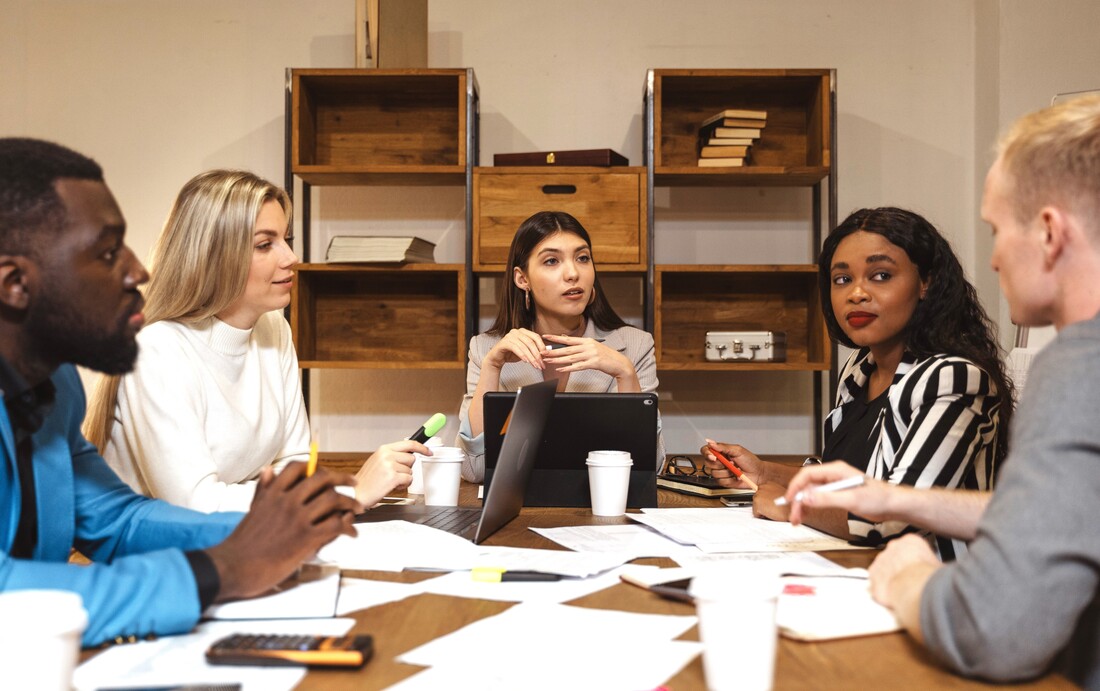


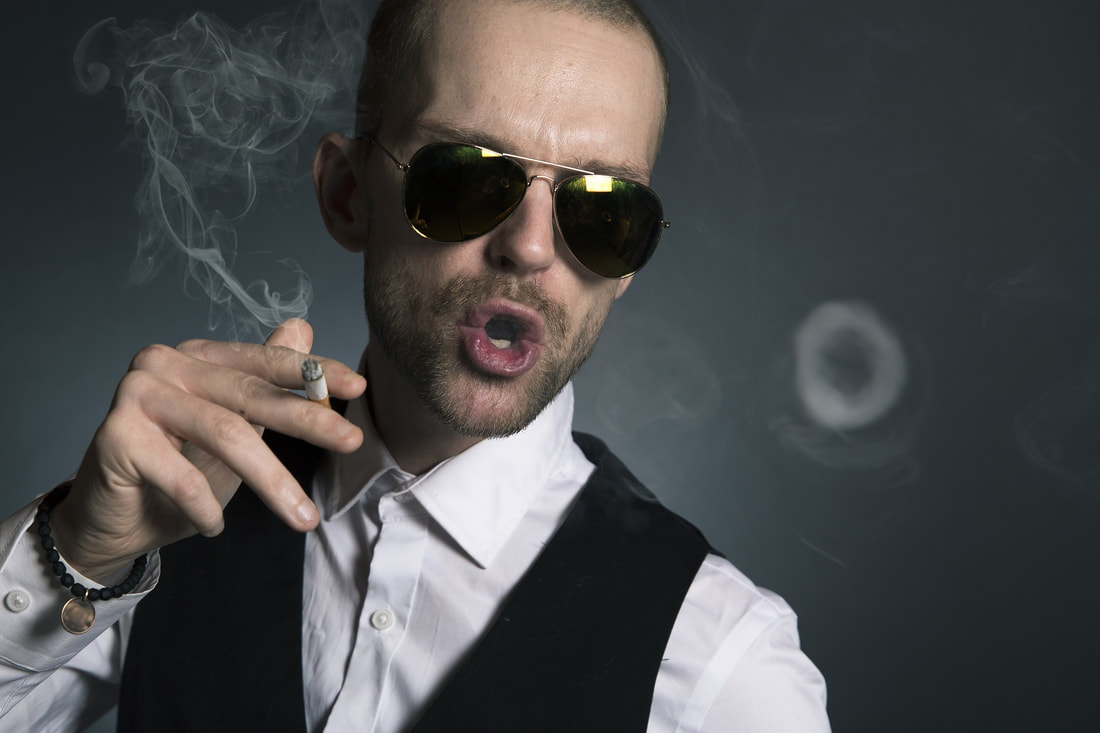
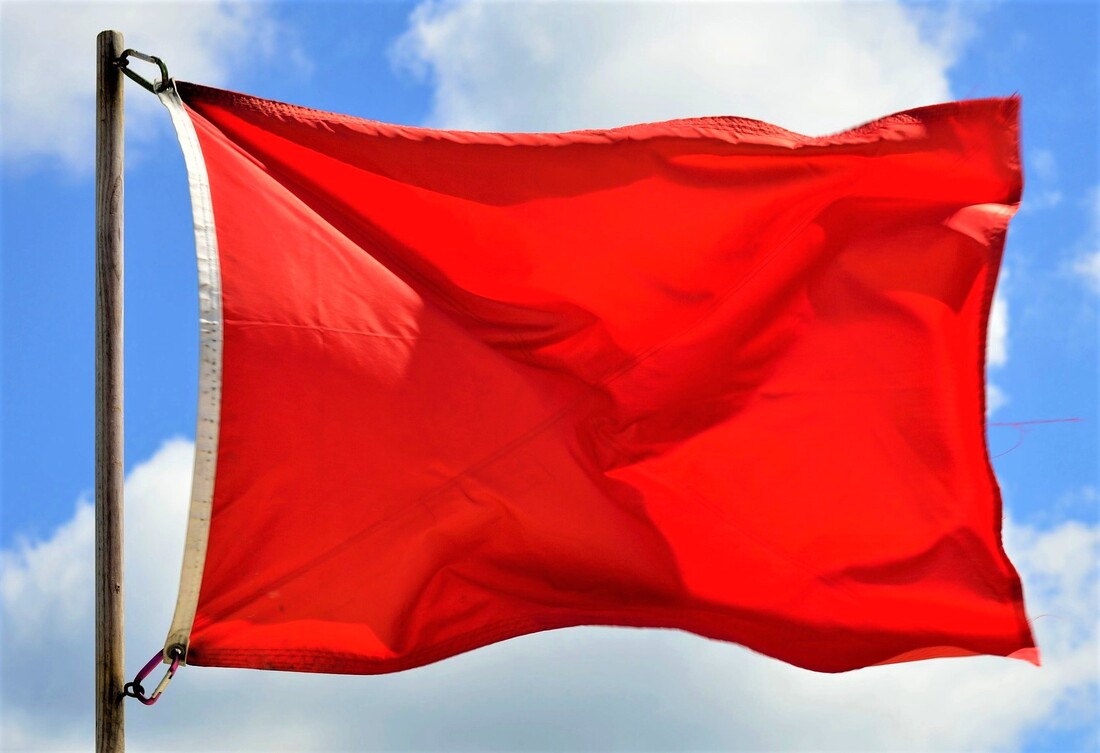
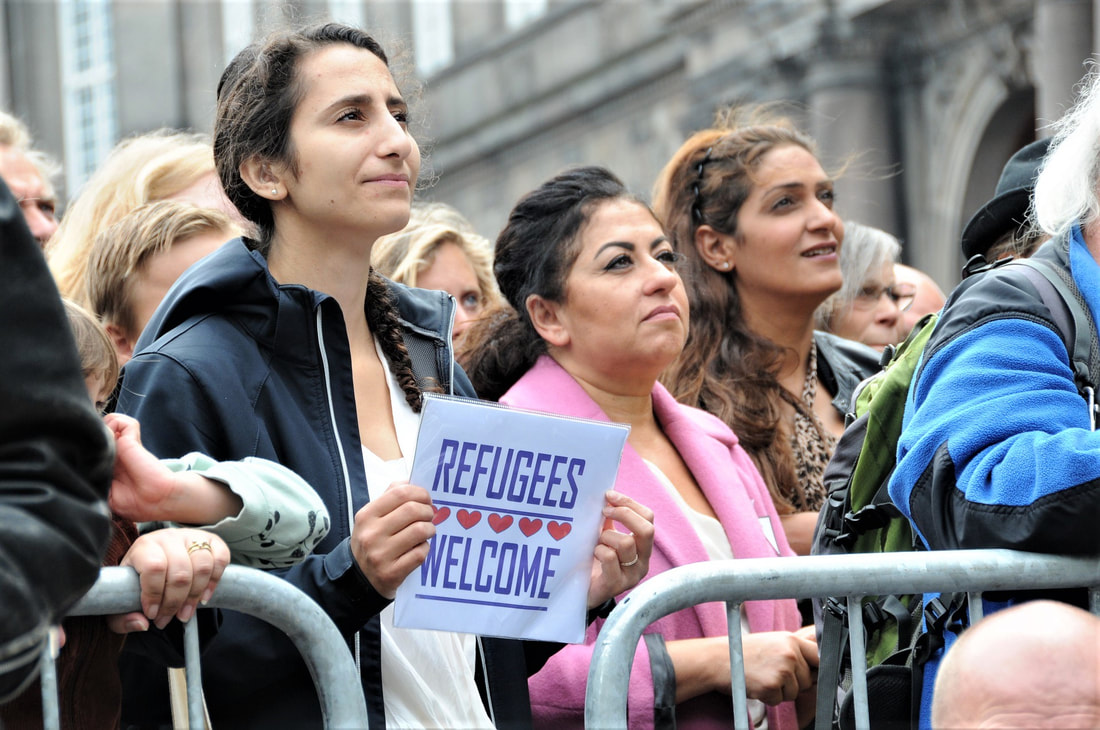
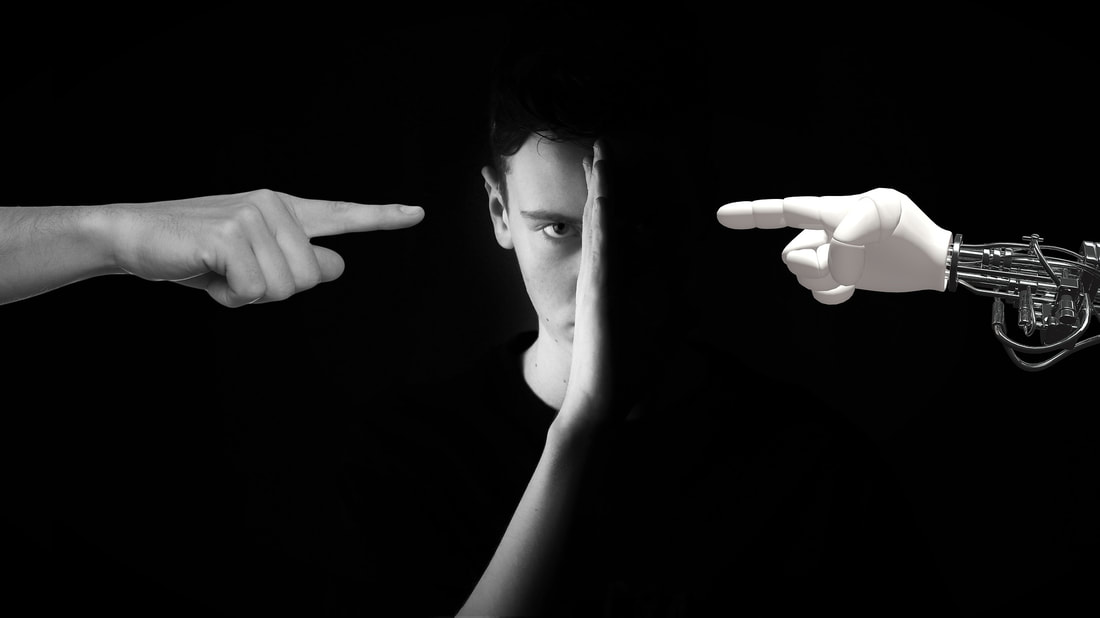




 RSS Feed
RSS Feed